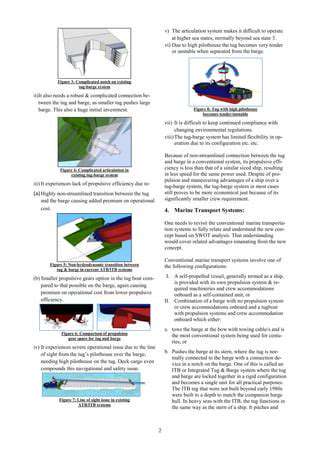Early International Agreements and the Seeds of Space Law
The burgeoning space race of the mid-20th century, fueled by the Cold War's geopolitical tensions, brought with it the urgent need for international agreements to govern the exploration and use of outer space. This period saw the emergence of critical questions concerning the peaceful use of space, the avoidance of an arms race in orbit, and the responsibility for activities in this new frontier. The initial discussions and treaties laid the groundwork for future legal frameworks, establishing fundamental principles that would shape the development of space law for decades to come. The sheer scale and complexity of space exploration demanded a collaborative approach, recognizing the shared responsibility of the global community in this endeavor.
Early agreements, while not comprehensive, signaled a commitment to international cooperation. They highlighted the need to establish norms of behavior and delineate responsibilities for nations engaging in space activities. These early agreements and subsequent treaties were essential steps in recognizing that space was a shared resource, not subject to national appropriation, and that its use should benefit all of humanity.
The Outer Space Treaty: A Cornerstone of Space Law
The 1967 Outer Space Treaty stands as a cornerstone of space law, establishing fundamental principles for the exploration and use of outer space. Its significance lies in its recognition of the common interest of all states in ensuring the peaceful exploration and use of outer space, while prohibiting national appropriation of celestial bodies. This treaty prohibits the placement of nuclear weapons in orbit or on celestial bodies, a crucial provision for maintaining international peace and security in the context of the ongoing Cold War anxieties. The treaty also highlighted the need for international cooperation in space activities, setting the stage for future agreements and collaborations.
The treaty's provisions regarding liability for damages caused by space objects reflect a crucial aspect of space law. This framework aimed to ensure that nations were held accountable for the consequences of their actions in space, a critical element for fostering a safe and predictable environment for future space activities and reducing potential conflicts.
Contemporary Challenges: Navigating the Expanding Space Frontier
The space landscape has evolved dramatically since the inception of the Outer Space Treaty. Contemporary challenges include the burgeoning commercialization of space, the increasing presence of private actors, the potential for space debris, and the growing need for international cooperation to address these complex issues. The proliferation of space-based assets and the increasing complexity of space operations have spurred a renewed focus on the need for robust legal frameworks to regulate these developments. The development of new technologies and the expansion of human activities in space are creating new legal dilemmas that demand innovative solutions.
The issue of space debris, a growing concern for the future of space operations, underscores the need for international cooperation and the development of clear regulations. The potential for collisions and the disruption of critical space-based infrastructure require proactive approaches to ensure the long-term sustainability of space activities. Addressing these issues necessitates a collaborative approach by all stakeholders, including governmental entities and the private sector, to establish and enforce standards that mitigate the risks associated with space debris.
The Future of Space Law: Enhancing International Cooperation
The future of space law hinges on the ability of the international community to adapt and respond to the evolving challenges and opportunities presented by the expanding space frontier. This includes fostering cooperation between nations, promoting the development of new legal instruments, and ensuring the effective implementation of existing agreements. The growing involvement of private actors necessitates a careful consideration of their rights and responsibilities, while ensuring that the principles of the Outer Space Treaty remain relevant and applicable to the changing dynamics of space activities. This requires a nuanced approach, recognizing the need to balance the interests of different stakeholders and to adapt the legal framework to the evolving technological and economic landscape.
International Cooperation and Future Directions in Space Governance

International Collaboration in Fostering Global Sustainability
International cooperation is crucial for addressing global challenges like climate change, pandemics, and economic inequality. The interconnected nature of these issues necessitates a collective effort from nations worldwide to develop and implement effective solutions. This collaboration involves sharing knowledge, resources, and best practices to accelerate progress towards sustainable development goals. International organizations play a pivotal role in facilitating these partnerships, fostering dialogue, and coordinating actions among member states.
By working together, nations can leverage diverse expertise and resources to tackle complex global issues more effectively. For example, international collaborations on climate change research and technology transfer can lead to innovative solutions and accelerate the transition to a low-carbon economy. The sharing of scientific data and best practices in public health can strengthen global pandemic preparedness and response mechanisms.
The Future of Global Diplomacy and Governance
The future of international relations hinges on the ability of nations to adapt to a rapidly changing global landscape. Technological advancements, geopolitical shifts, and evolving societal needs necessitate innovative approaches to global diplomacy and governance. This includes fostering trust and understanding among nations, promoting dialogue and negotiation, and addressing emerging challenges in a proactive and collaborative manner.
Sustainable development goals, such as reducing poverty, promoting education, and ensuring environmental protection, require strong international cooperation. Effective governance mechanisms are essential to achieve these goals and promote global peace and prosperity. This involves a commitment to multilateralism, strengthening international institutions, and promoting inclusivity in decision-making processes.
Foresight and Planning for Future Challenges
Proactive foresight and strategic planning are essential for addressing future challenges and ensuring a sustainable future for all. Anticipating potential risks and opportunities is crucial for developing effective strategies to mitigate negative impacts and capitalize on emerging opportunities. This requires analyzing trends, understanding potential disruptions, and fostering innovative solutions to address complex issues.
International cooperation in foresight and planning can help nations anticipate and prepare for potential future challenges, such as resource scarcity, technological disruption, and social unrest. By sharing information and collaborating on research, nations can develop more resilient and adaptable strategies to navigate the complexities of the future.
Furthermore, developing comprehensive frameworks for evaluating and adapting to global trends is critical. This involves establishing robust monitoring and evaluation systems to track progress, identify emerging issues, and adjust strategies as needed. International collaboration in this area is paramount to ensure that global efforts are coordinated and effective in addressing future challenges.
Anticipating and preparing for these challenges demands a forward-thinking approach, which includes fostering innovation and promoting technological advancements to address critical global issues. This requires a commitment to investing in research and development, promoting education and training, and encouraging the development of new technologies and solutions.











